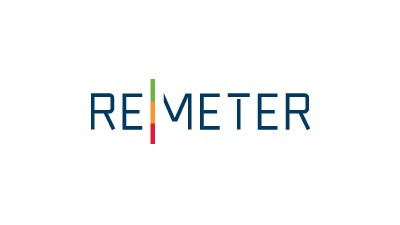How to Make Sure You’re Leasing to a Strong Startup

Dozens of startups are sprouting up every day, looking for spaces to set up shop. But with expenses exceeding revenues as the startups endure early growing pains, the lack of a proven business model can put landlords in a pickle. Should they open their doors and spaces to these up-and-comers, hoping they can gain enough capital to pay off their rent?

The risk seems even more pronounced when one looks at the failure rates of these startups. According to the US Census Bureau, one-year-old firms have failure rates of 28.5% and, if they have fewer than five employees, that chance of failure jumps to 34%. So what can landlords do to cut down on the high risk of leasing to startups?
According to a report by Bisnow partner (RE)Meter, there are nine things landlords can check or do to assure that a tenant has strong financial resources and can afford and sustain rent expenses.
To learn more about our Bisnow partner, click here.
1) Growing Revenues and Profitability
The startup should show growth in their net revenues and EBITDA, showing that they have enough sales and profits to pay rent. If the company’s EBITDA is positive and exceeds rent, you can rest assured that the tenant’s operational foundation is a moneymaker and they don’t rely on borrowing or raising capital to sustain cash flow. If the company has operating losses, especially in the EBITDA, however, then you’ll need to determine the monthly cash burn rate and see how many months its working capital can cover operating losses. (RE)Meter says this can be easily done by subtracting current liabilities from current assets and dividing by its monthly operating losses.
2) Above Industry Average Liquidity Ratio
The tenant’s assets should exceed its current liabilities, giving it the liquidity to pay off rent.
3) A Strong Number of W2 Employees
Companies with fewer than five W2 employees are much more likely to tank than firms that can afford to hire employees.
4) Actual, Accurate Financials
A strong tenant will have at least two years of financials that provide insight into revenues achieved and actual burn rate. If a potential tenant only has financial projections, (RE)Meter says you’ll need to see if these projections of market share and profitability are realistic.
5) Below Industry Average Debt to Equity
The tenants’ liabilities should be less than its equity, meaning that the company can increase borrowings in case of a downturn in the industry or the company itself.
6) A Growing and Profitable Industry
It’s important to know if the tenant’s local industry is growing and profitable. Are more firms and jobs entering the market?
"A rising tide lifts all boats,” the report says, “so a healthy industry may provide support for a startup.”
7) Lease Terms Affordable Relative to its Financials
Ask yourself, can a tenant afford the proposed rent? Benchmark the tenant’s rent to sales and EBITDA to rent and compare it to the tenant’s industry peers. If the revenues and EBITDA are too small relative to rent expenses, they should prove that they have enough liquid assets to cover the rent.
8) Secure Capital Put into the Lease Deal
Once you have assessed the firm, industry and lease risk, you need to secure the capital either through a review of the income and assets of the individuals or groups acting as guarantor, or getting a letter of credit rather than a security deposit.
9) A Consideration of Your Own Circumstances
If you have a property with a high vacancy rate, you may have to take more risks, but if you can find a startup that will lease the space “as is” and capital is minimized, they may be worth the risk.

